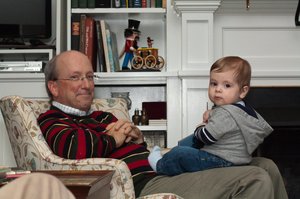After a nationwide search, the AAMC welcomes two new chiefs to its staff: Alison Whelan, MD, as chief medical education officer and Ross McKinney Jr., MD, as chief scientific officer.
Whelan and McKinney bring unique expertise and experience to the AAMC, according to AAMC President and CEO Darrell G. Kirch. “Whelan has been a driving force in professionalizing the teaching of medical students and McKinney’s leadership in bioethics and clinical research at the national level makes him exceptionally well suited to direct AAMC programs and priorities in research, training, and science policy,” he said.
Whelan served as senior dean for education and professor of medicine and pediatrics at Washington University School of Medicine in St. Louis, in Missouri, where she was a faculty member since 1994. McKinney directed the Trent Center for Bioethics, Humanities & History of Medicine and was professor of pediatrics and pediatric infectious diseases at Duke University Medical Center in Durham, N.C.
As chief medical education officer, Whelan said she will build on the AAMC’s long record of leadership in innovation and advancing medical education to “help program leaders carry out their [respective] missions.”
A longtime champion of interprofessional education (IPE), Whelan supported the creation of an IPE center at Washington University School of Medicine that collaborates with neighboring nursing and pharmacy schools. She said she will continue to focus on IPE advancement when at the AAMC.
“Whelan has been a driving force in professionalizing the teaching of medical students and McKinney’s leadership in bioethics and clinical research at the national level makes him exceptionally well suited to direct AAMC programs and priorities in research, training, and science policy.”
Darrell G. Kirch, MD, AAMC president and CEO
During her tenure at Washington University, Whelan said she regularly referenced AAMC literature but was primarily involved with the National Board of Medical Examiners (NBME) and the Liaison Committee on Medical Education (LCME).
“It gives me a really interesting perspective because in some ways I’m an outsider, which I think is valuable,” she said. “One of the main challenges for the AAMC is finding new and effective ways to connect, serve, and advocate for the academic medicine community. As a little bit of a newcomer, I can listen with open ears and look with fresh eyes.”
As scientific chief, McKinney plans to address the biggest challenges he sees facing medical researchers. “I think it’s absolutely critical that academic medical centers be able to do research in an efficient, effective way. And in order to do so, some of the rules that we currently operate under need to change,” he said. In particular, he cited regulatory burdens experienced by medical researchers and the need for more integration of research and clinical care. There must also be more incentive for new researchers, he added.
“We currently have a very project-based approach at the National Institutes of Health. We need to look at how we can support more funding for career development, as well as individual projects, and how we can change the paradigm to promote new ideas by providing more solid career paths.”

Going forward, he said it is important for those representing academic medical research to consider, “How can we be sure that we demonstrate our value to the public who are paying for us to do the work that we do? How can we make sure they believe in what we are doing and understand the nature of what we are doing?”
Whelan, who has spent her entire career in the Midwest, said she is excited about coming to Washington, D.C. Having completed a number of marathons and half-marathons, she intends to do some running while visiting members of the medical education community at institutions across the country. “It’s a great way to see cities,” she said.
Similarly, McKinney, comes to D.C. after spending many years in North Carolina, where in his spare time he repairs vintage pens and dabbles in music, singing, and playing guitar—he leans toward folk music, specifically Americana.